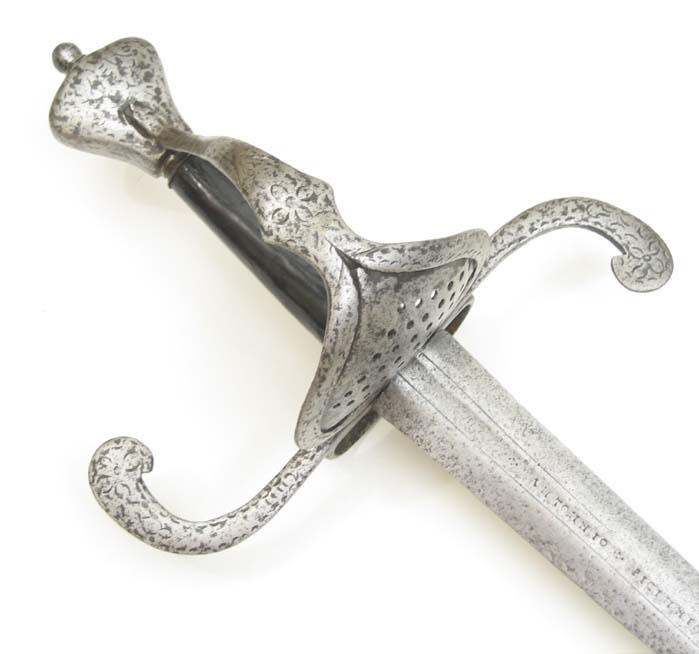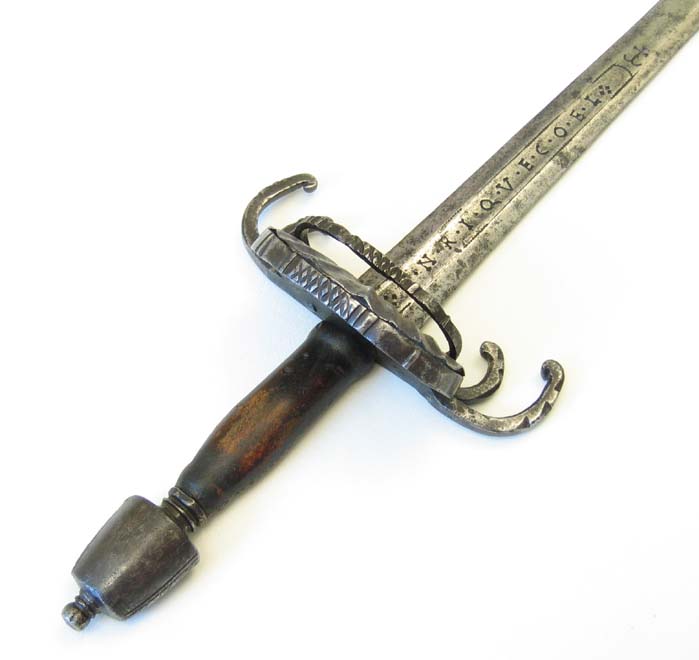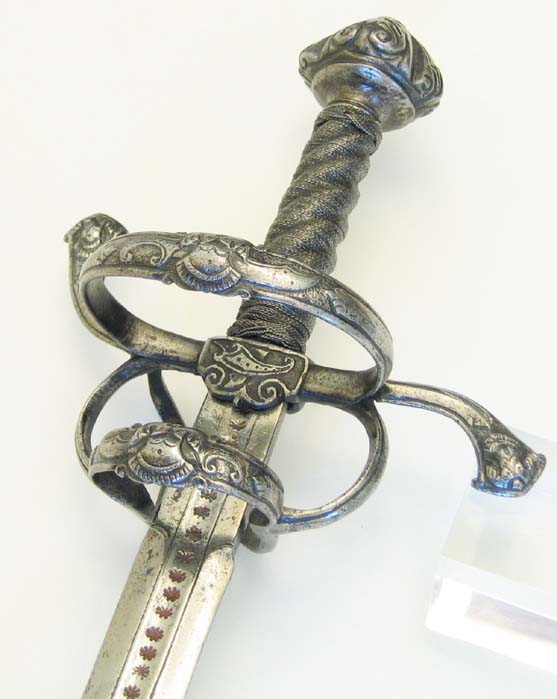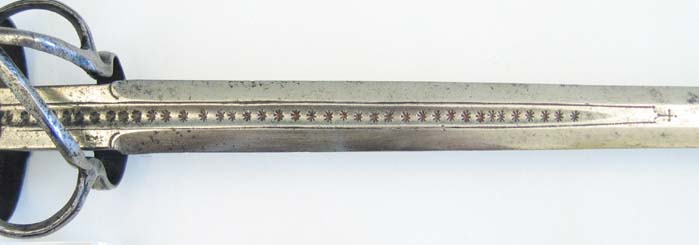I made this observation a few years ago when visiting the National Museum of the American Indian with Bill Grandy. You can read his report here.
The timing was such, that my older son had just recently been confirmed in the Catholic Church and one of his confirmation gifts was a wallet rosary. (I've attached a picture of one below.) Looking at these two swords at the NMAI, the resemblance stuck out.
Sword 1
Sword 2
Shortly afterwards I had the opportunity to discuss this observation with Mr. Johnson and Dr. Ernoehazy and they agreed that it was likely the case that this engraving pattern started as a depiction of a rosary. There is considerable variation in this pattern. The shape of the lines, the number of dots, even the type of cross is not consistent. Some later period swords have even simplified the design down to simply lines with a cross. At that point, the pattern may have simply become traditional and had lost its original meaning as a specific religious tool. It is even used on modern reproduction weapons, often in its simplified form of lines and a cross, such as that on Albion's Gallowglass.
Though we have been referring to these swords as rosarial swords as a means to identify them, the patterns do not necessarily depict a modern rosary recitation. They do, however, correspond with early prayer bead patterns and recitations. Prayer counters have been used historically by many world religions and even in the Christian religion their use predates the “Hail Mary” and the modern rosary prayer which includes specific meditations on the life of Christ. Some early prayer beads were used to count the number of repetitions of the “Our Father” and were called Paternoster beads.
Taking this idea that this engraving pattern of lines and dots was meant to be representative of Christian prayer beads of some sort, Mr. Johnson, Dr. Ernoehazy and myself would like to collect images of these swords and compare them to each other and the evolution of the pattern over time as well as comparing it to the beginnings of the rosary. I have attached a few images below that I scanned from books in the Library of Congress. We would also be very interested in any mention of this pattern in period commentary or scholarly mention of this pattern representing prayer beads in scholarly works. We would welcome input from myArmoury readers that would include more of these rosarial swords.
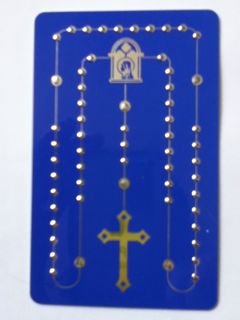
wallet rosary
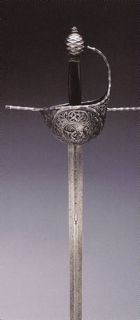
Cup-Hitled Rapier, Italy c. 1610-30, from Arms and Armor: The Cleveland Museum of Art
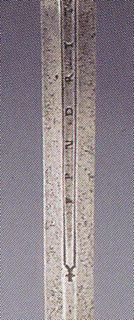
Close up of blade on the cup hilt rapier.
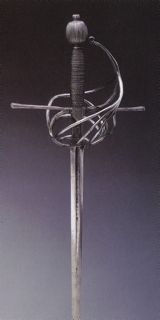
Rapier, blade from Spain, hilt from Italy c. 1580 – 1610 from Arms and Armor: The Cleveland Museum of Art
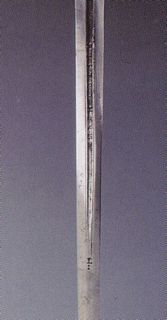
Close up of rapier blade
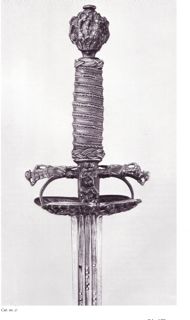
Sometimes the pattern is made of piercings rather than engravings, such as that in this smallsword, c. 1650-1660, from The Art of Chivalry
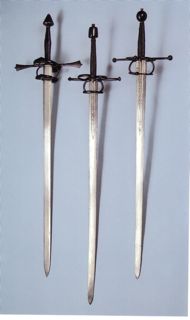
The sword in the middle and the one on the right both exhibit the pattern and are both c. 1580-1620. From Imperial Austria : treasures of art, arms & armor from the state of Styria
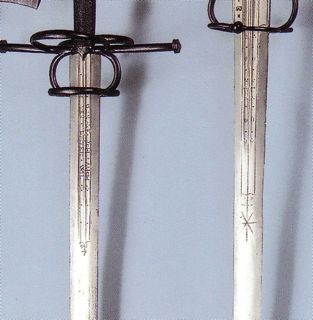
Closeup of the blades.
